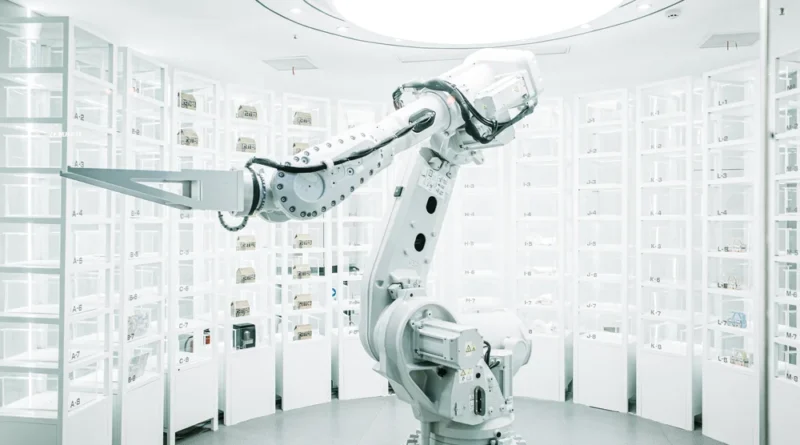The Rise of Artificial Intelligence: Driving Tech Industry Innovations
Artificial Intelligence (AI) has rapidly advanced in recent years, revolutionizing various industries and driving significant technological innovations. Groundbreaking advancements in machine learning, deep learning, and data analysis have accompanied its rise. This article explores the profound impact of AI on the tech industry and how it drives innovation across different sectors.
Understanding the Rise of Artificial Intelligence
Artificial Intelligence refers to the development of computer systems capable of performing tasks that typically require human intelligence, such as visual perception, speech recognition, decision-making, and problem-solving. The rapid growth of AI can be attributed to several factors, including the increasing availability of big data, improvements in computing power, and advancements in algorithmic techniques.
Transforming Data Analytics and Insights
AI has revolutionized the field of data analytics by enabling businesses to extract valuable insights from vast amounts of data. Machine learning algorithms can analyze complex datasets and identify patterns, trends, and correlations that would be difficult for humans to detect. This ability to uncover hidden insights has led to more informed decision-making and has become a game-changer for companies in various industries.
Enhancing Customer Experience
One of the significant impacts of AI in the tech industry is its ability to enhance customer experience. AI-powered chatbots and virtual assistants provide personalized and interactive customer support, improving response times and reducing human error. Additionally, AI algorithms can analyze customer data to generate targeted recommendations and offers, increasing customer satisfaction and loyalty.
Automation and Efficiency
AI has revolutionized automation, enabling machines to perform tasks that previously required human intervention. Robotic Process Automation (RPA) utilizes AI algorithms to automate repetitive and rule-based tasks, freeing human resources for more complex and creative work. This increased efficiency has resulted in significant cost savings and improved industry productivity.
Advancements in Healthcare
The healthcare industry has experienced tremendous benefits from the rise of artificial intelligence. AI-powered systems can analyze medical data, diagnose disease outcomes, and recommend treatment plans. Medical imaging has particularly benefited from AI, as machine learning algorithms can analyze medical scans to identify abnormalities and assist radiologists in making accurate diagnoses.
Driving Innovation in Autonomous Systems
AI is driving the development of autonomous systems, including self-driving cars, drones, and robots. These systems rely on AI algorithms to perceive and interpret their environment, make decisions, and take appropriate actions. The rise of artificial intelligence in autonomous systems is reshaping transportation, logistics, and manufacturing industries, improving safety and efficiency.
Cybersecurity and Fraud Detection
The rise of artificial intelligence has also had a significant impact on cybersecurity and fraud detection. AI algorithms can analyze vast amounts of data to identify patterns and anomalies, enabling organizations to detect and prevent cyber threats and fraudulent activities in real-time. AI-powered security systems can continuously learn and adapt to evolving threats, providing proactive defense mechanisms.
Improving Personalization in Marketing
AI is transforming the marketing landscape by enabling personalized and targeted advertising campaigns. AI algorithms can deliver tailored content and recommendations to individual users by analyzing consumer behavior, preferences, and social media interactions. This level of personalization has not only increased marketing effectiveness but has also improved the overall customer experience.
Ethical Considerations and Challenges
While the rise of artificial intelligence brings numerous benefits, it raises ethical considerations and challenges. Data privacy, algorithm bias, and job displacement must be addressed to ensure responsible and fair AI deployment. Collaborative efforts between industry, academia, and policymakers are essential to establish ethical guidelines and regulations for AI development and usage.
Also read: Understanding Artificial Intelligence: A Comprehensive Guide
Conclusion
The rise of artificial intelligence has been a transformative force in the tech industry, driving innovation and revolutionizing various sectors. From data analytics and customer experience enhancement to healthcare advancements and autonomous systems, AI has proven its potential to reshape the future. However, ethical considerations and challenges must be addressed to ensure AI technology’s responsible and beneficial use. As AI continues to evolve, its impact on the tech industry and society will only grow, unlocking new possibilities and driving further innovations.




